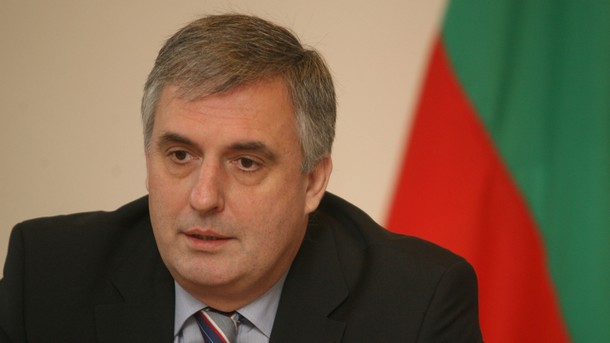Bulgaria's population may decrease by almost 30 percent by 2050, a report of the UN on the demographic development of the world forecasts. This way the current population of 7.5 million Bulgarians would melt to 5.154 million by the middle of the century. The report focuses on global ageing. By 2050 the number of people older than 60 would rise twofold, analysts say. Europe is the leader when ageing is concerned. By 2050, 34% of Europe’s population will be aged over 60. Despite the updated National Strategy for Demographic Development of the Republic of Bulgaria (2012-2030), Bulgaria is one of the fastest aging nations in Europe. By November 30, the government should develop short – and long-term measures within the strategy on demographic policy to set the direction for solving the demographic crisis in the country. This is what MPs decided in parliament after identifying a number of negative trends – the nation has been aging; mortality increases; there is a lack of adequate access to health care and fertility has also declined. The deterioration of family values and emigration also have their effect on the demographic situation in the country.
 “The idea is not to create something new, but to make the current demographic strategy a document adopted by the National Assembly,” said in an interview for Radio Bulgaria, Deputy Prime Minister and Social Minister Ivaylo Kalfin. “There are actual measures that have been identified, and each year the Council of Ministers should report about their implementation. Furthermore, I proposed that each bill should go through demographic verification, like it is done in Germany. It is important for society to know what we mean when we say demographics. We do not speak only about the number of the people, as most children are born in the poorest countries. I would like to focus on quality of life, which includes incomes, access to health care, good education, opportunities. This is a more comprehensive approach that does not rely on cheap labor. We should aim at a more intelligent economy where people contribute to making the country richer.”
“The idea is not to create something new, but to make the current demographic strategy a document adopted by the National Assembly,” said in an interview for Radio Bulgaria, Deputy Prime Minister and Social Minister Ivaylo Kalfin. “There are actual measures that have been identified, and each year the Council of Ministers should report about their implementation. Furthermore, I proposed that each bill should go through demographic verification, like it is done in Germany. It is important for society to know what we mean when we say demographics. We do not speak only about the number of the people, as most children are born in the poorest countries. I would like to focus on quality of life, which includes incomes, access to health care, good education, opportunities. This is a more comprehensive approach that does not rely on cheap labor. We should aim at a more intelligent economy where people contribute to making the country richer.”
According to Deputy Prime Minister Kalfin, rapid measures that are to give concrete result are flexible working hours, opportunities for working at home, as well as special vouchers.
“These vouchers are used widely in a number of European countries such as Belgium and France. I was told that the birth-rate in France increased by a few percent thanks to these vouchers,” Kalfin continues. “These are vouchers for home support that also provide work to unemployed. This way part-time services like cleaning, cooking, ironing and baby-sitting are paid for. Using these vouchers parents can work and be calm about their children at home.”
Deputy Prime Minister Ivaylo Kalfin wants to introduce these vouchers in the autumn but there are a few things that need to be done before that.
“Information systems must be created, because this is an absolutely new type of system for domestic services. Immediately after the summer months we will present the concept and the specific measures. Delays may come from the process of creating a good information system. I have ambitions to make this system functioning as quickly as possible,” the Deputy Prime Minister said in an interview for Radio Bulgaria.
English version: Alexander Markov
Modernizing critical thinking skills, fact-checking skills and media literacy are essential for society, especially for young people in Bulgaria - the country with one of the lowest media literacy indices in the EU, reports the educational platform..
The residents of Pleven (Central North Bulgaria) will bid farewell to 2024 with a Christmas Town and meetings with Santa Claus. This year's festive program of the local municipality will start on December 2 with the Christmas tree lighting ceremony at..
An innovation for the treatment of diabetic foot ulcer using the patient's own tissue and artificial intelligence has been implemented at the University Multi-profile Hospital for Active Treatment-Burgas. Bulgaria is the fourth European country to start..
An innovation for the treatment of diabetic foot ulcer using the patient's own tissue and artificial intelligence has been implemented at the University..
Over 3.5 million Ukrainians have arrived in or passed through Bulgaria since the beginning of the war. Nearly 200,000 people have found temporary..
At the Bulgarian Embassy in London, Prof. Bettany Hughes presented excerpts from the new BBC series - Wonders of Bulgaria. Prof. Bettany..

+359 2 9336 661
